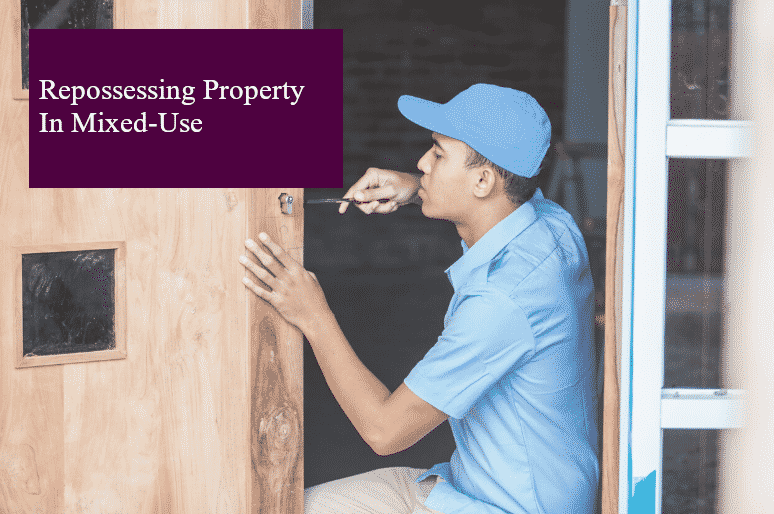Repossessing Property in Mixed-Use
Posted by David Cammack on November 5, 2019

This article on repossessing property in mixed-use follows on from our earlier article on CRAR (Commercial Rent Arrears Recovery) under the Tribunal Courts and Enforcement Act 2007.
CRAR for Commercial Property
If discussion with the tenant has not been successful in getting the rent arrears paid, you need to take action. The next thing to consider is whether CRAR is available. Also consider if the goods available are worth enough to pay for the rent arrears. If the answer is no to either, then the commercial landlord can fall back on a forfeiture provision. This is provided it exists in the lease. If so, the landlord can use this provision in order to evict the tenant and repossess the premises.
CRAR applies only if the premises are solely commercial. However, it does not work for either (a) residential or (b) mixed-use properties.
Forfeiting Property in Mixed-Use
Commercial landlords often ask: “The tenant rents from me a shop which has a flat over it. He is X months overdue on the rent. Can you help me?”
The CRAR (Commercial Rent Arrears Recovery) process is not available except where the premises are solely commercial in use. Previously, you could deal with forfeiture of mixed-use property where the flat (or other residential part) had its own entrance, by repossessing just the commercial part. This was thought to be permitted by the Protection from Eviction Act 1977. If the residential part did not have its own separate entrance, then all of the property was in mixed-use and you could not repossess just the commercial part. To do that would clearly interfere with accessing the residential part, which you could not to repossess without a court order. It was accepted law that the Protection from Eviction Act 1977 already banned that.

The Pirabakaran -v- Patel case
However, this all changed in 2006 with the case of Pirabakaran -v- Patel in the Court of Appeal. The Court ruled that:
- any mixed-use property requires court proceedings in order to forfeit it; and
- you cannot peaceably re-enter it lawfully, not even for just the commercial part.
To attempt peaceable re-entry in such a case, the landlord would be in breach of the Protection from Eviction Act 1977. It says you cannot forfeit without court proceedings or peaceably re-enter if “any person is lawfully residing in the premises or part of them”. It was this latter part that the Court picked up on in this legal case. As a result, it decided that the mixed-use premises meant you could not repossess even just the commercial part without a court order.
As a result, re-entry of any part of mixed-use premises without a court order will be a criminal offence.
For Legalo’s superb commercial property templates click here.